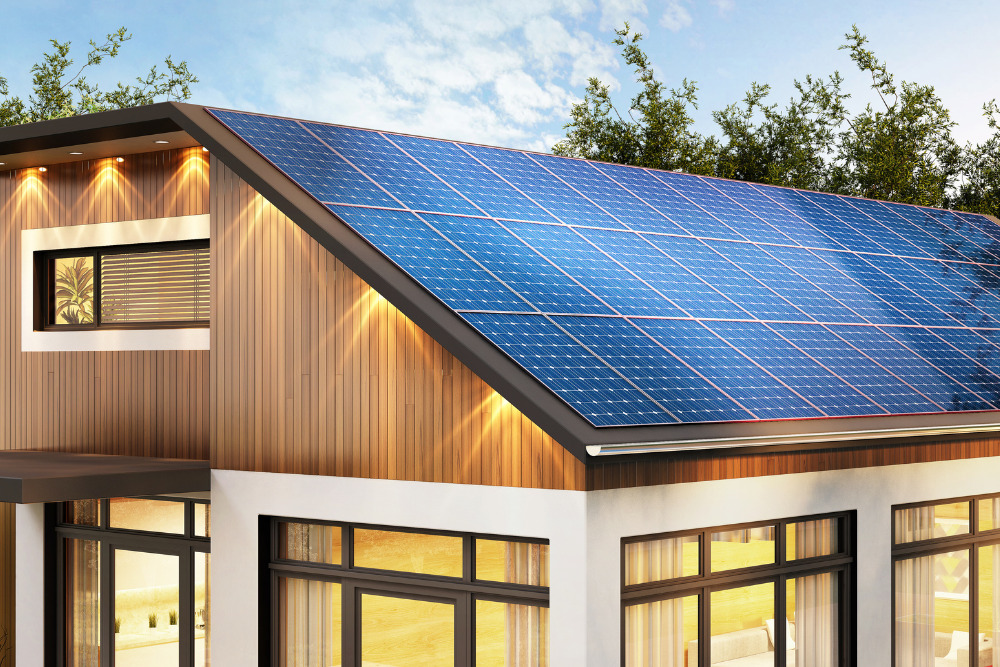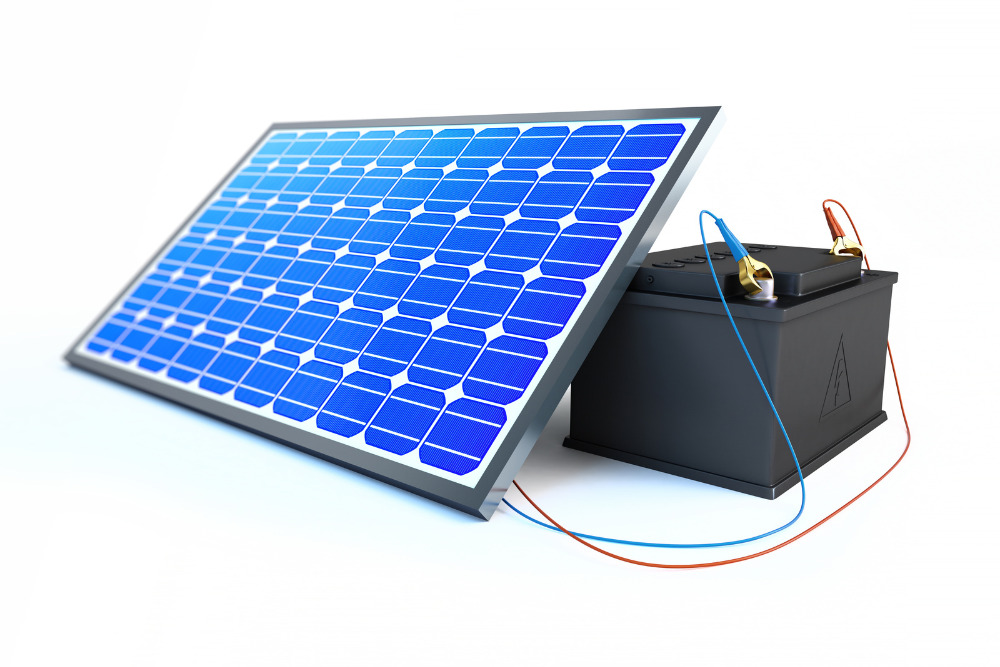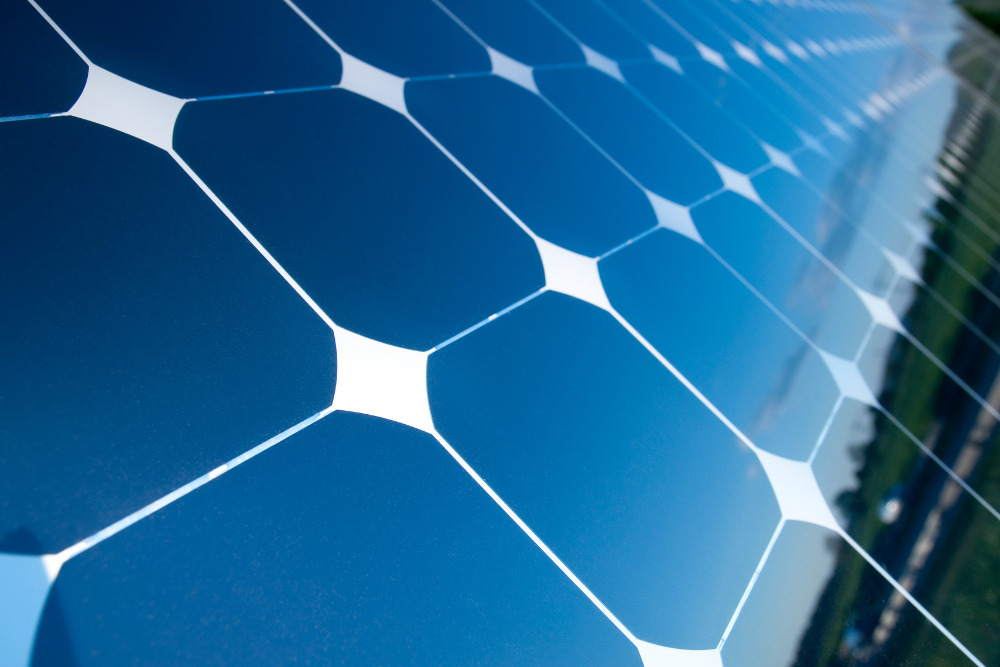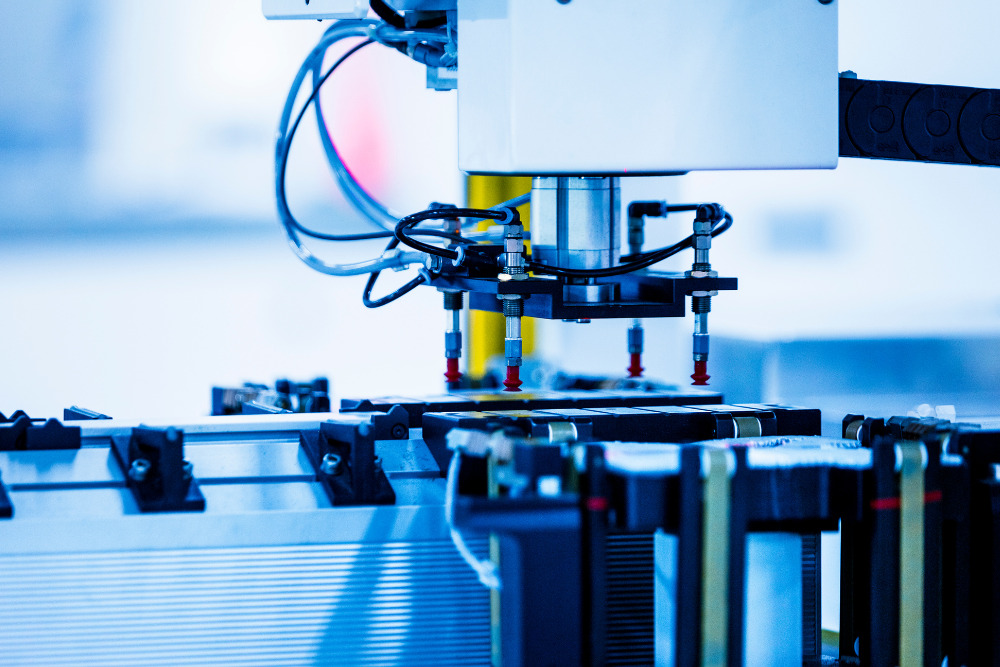There are several options for financing solar panels, including a personal loan, credit card, a solar loan, PPA or solar lease, or a home equity loan.
The price of residential solar panels will vary, but the average homeowner can expect to spend around $3-5 per watt installed. The average 6 Kw home system will cost between $18,000-$30,000.
Though the upfront cost can be a little steep, eligible residential solar power systems will receive a federal solar tax credit and your monthly electricity bill will be reduced or eliminated.
Since many homeowners don’t have that much cash upfront, there are several ways to finance solar panels in order to have manageable monthly payments.
Is It Worth It To Finance Solar Panels?
Though it is a big decision and one that you need to look at in depth ahead of time, for many homeowners, financing the total cost of your solar panel system may be worth it.
In general, it may take 6-10 years for your solar panels to pay for themselves. However, typical solar panel systems are built to last for around 25 years on average. Depending on your local electricity rates and energy usage, your solar panel installation will save you $10,000-$40,000 in electricity over the life of the system.
Of course, this depends on several factors, including whether you can secure a low-interest rate if you take out a loan, as well as your payback period. You would need to consider those factors and see if financing solar panels would be worth it or not for your home.

What Solar Panel Financing Options Are Available?
Personal Loan
Taking out a personal loan to finance your solar panel installation if you have good credit and can pay the loan off in 5-15 years.
This option will typically get you the cash you need quickly, often within a couple of days, to purchase your solar panels and have them installed. Another plus is that personal loans are unsecured, meaning that you don’t have to put up collateral or have home equity to qualify for the loan.
The only downside to this method of financing is that you need to have excellent credit, reliable income, and a low debt-to-income ratio. If not, you may get stuck with a higher annual percentage rate.
Solar Loan
As the name indicates, a solar loan is like a home improvement loan specifically for homeowners to install solar equipment. This is a great option if you don’t have the cash in hand, but want an affordable monthly payment.
If your estimated loan payments are less than your monthly utility bill, then this option is worth looking into.
You can apply for either a secured loan or an unsecured loan under this loan option depending on several factors, including your credit score. Those with higher credit scores may have more of a chance to qualify for an unsecured loan, meaning no collateral is needed.
Your credit score is what will determine your eligibility for this type of loan, as well as your interest rate. The average interest rate is between 4% and 17%, but can be higher for those with lower credit scores. Generally speaking, a 650 FICO score is the minimum required for a solar loan. Having a score of between 680 and 719 may allow borrowers to give you a better interest rate, and a score of 720 and above will qualify you for the best rates.
Whether you’re considering a personal loan or a solar loan, be sure to check with your personal bank as well as local credit unions and lenders that specialize in solar.

Power Purchase Agreement or Solar Lease
A PPA or a solar lease is a good choice if you want to avoid the upfront costs and maintenance responsibilities of owning solar panels.
A PPA, or power purchase agreement, and a solar lease are similar in that a solar installer, builder, or contractor will absorb all of the system costs upfront. They will install and maintain the equipment and ‘rent’ it to you. The main difference is that in a PPA you purchase energy from the owner on a per kilowatt-hour basis, whereas with a solar lease, you will have a fixed monthly rate to rent the solar panel system.
With a PPA or solar lease, the contracts can extend for 10-25 years. If you are planning on moving within that time, you will have to find a buyer who is willing to take over that lease or agreement for you, or you may have to pay a hefty cancellation fee.
You may be wondering what the difference is between a solar loan and a solar lease. With solar panel loans, you are taking out a loan to purchase a solar panel system. You own the solar panel system and are responsible for paying back the loan amount plus interest.
However, with a solar lease, you are not the owner of the solar panel system. You are leasing or renting the solar power equipment from a solar company.
HELOC or Home Equity Loan
If you have a lot of home equity, you may consider a home equity loan or home equity line of credit.
A HELOC lets you borrow against your home value. With this option, you could have a variable interest rate, so your payments could fluctuate over time.
A home equity loan works like a personal loan. There is a fixed interest rate, repayment timeline, and monthly payments. Either of these could be a good option if you have home equity and good credit. The interest you pay might also be tax deductible, which is a plus.
However, you can only borrow up to 85% of your home equity. The application process is also a bit more tedious than with personal loans as the bank in required to do an appraisal of your home.
FHA and Fannie Mae Loans
This is a great choice for you if you are buying a home and want to roll the cost of solar energy into the mortgage as an energy-efficient home improvement project. This gives you the opportunity to have one monthly payment, rather than having a separate payment for your mortgage and solar loan.
The Fannie Mae Homestyle Renovations loan is sometimes an easier loan to get than others because they allow up to 97% loan-to-value rate. Meaning, a down payment of as little as 3% is needed. You can also use either of these options to refinance your mortgage and pay for the solar upgrades.
The downside to wrapping your solar panels and mortgage into one is that it may come with a higher interest rate. There are also usually higher closing costs and origination fees, as well as certain loan terms you must abide.
How To Make Solar Panels More Affordable
Not only can your solar panels cut down on your monthly bills from the utility company, but they can save you money in other ways, including:
- Federal Investment Tax Credit: Installing renewable energy in your home may qualify you for a Residential Clean Energy credit of up to 30% of the installation cost.
- Rebates: You may receive rebates from your utility provider or the Department of Energy for installing solar home energy.
- Local Tax Incentives: Some states also give solar incentive tax credits for homes powered by renewable resources.
- Increased Property Value: Solar installations increase your home’s property value. According to Zillow, homes with solar panels sell for around 4% more than comparable homes without solar.
You can enter your zip code on the Database of State Incentives for Renewables & Efficiency to find more local incentives for installing solar panels.


